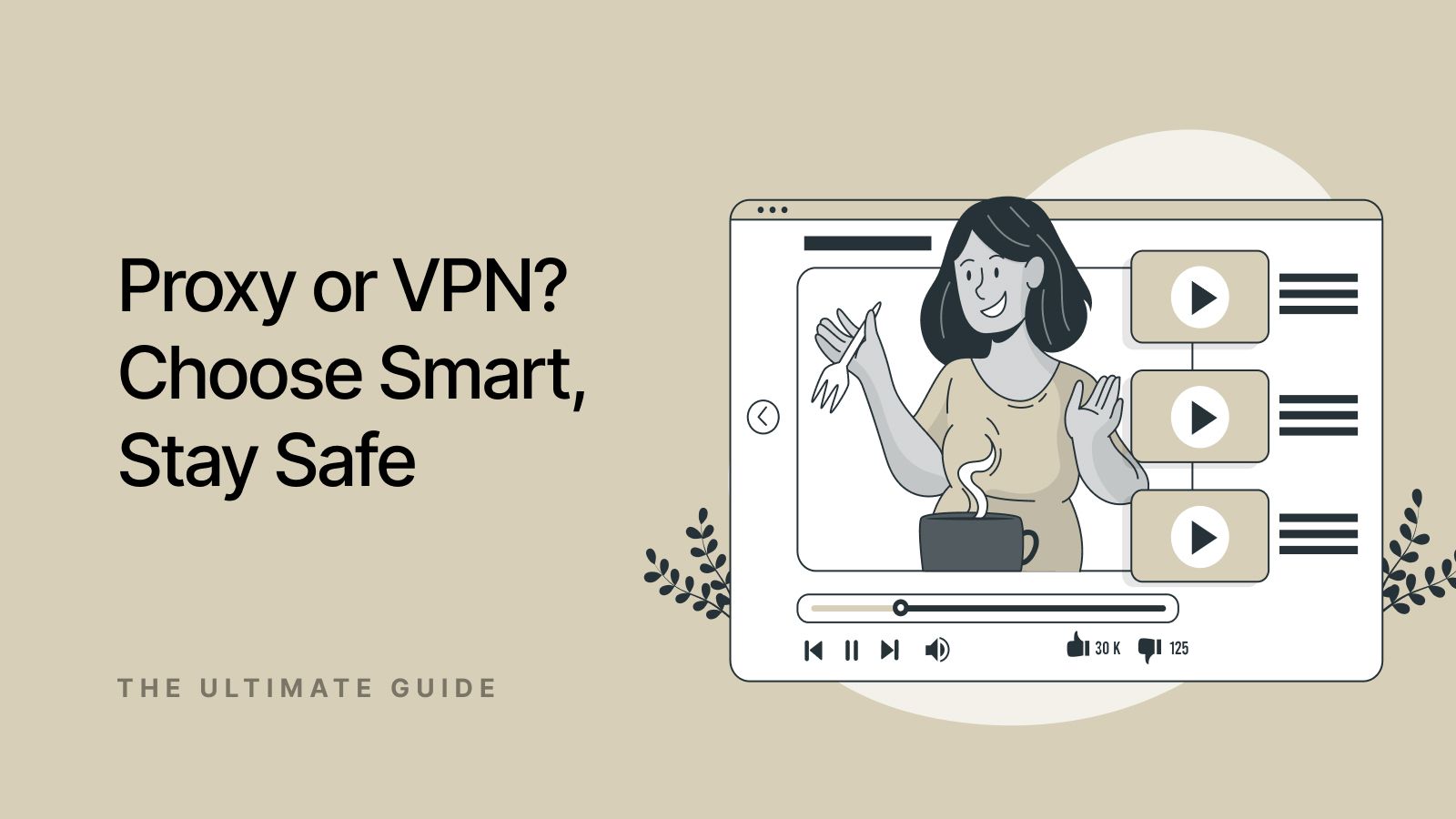Protecting your digital privacy has never been more critical in the hyperconnected world of today, when every click, swipe, and search may be monitored. If you have ever searched for methods to remain anonymous or safe online, you have most likely found two often used answers: VPNs (Virtual Private Network) and proxies. Which one, though, should you apply and what do they really do?
This article dissects everything in simple English, free of technical jargon; the data you need to make a wise, informed decision are all there.
Before we dive in, if you're looking for a quick and reliable way to protect your Android device, check out FineVPN’s VPN for Android. It’s a secure, no-logs VPN service that’s easy to set up and perfect for browsing safely on public Wi-Fi, streaming content, or just staying anonymous online.
So, What Exactly Is a Proxy?
Think of a proxy server like a middleman. Instead of going directly to a website, your internet request goes to the proxy first. Then the proxy passes that request along and brings the response back to you. To the website, it looks like the request came from the proxy, not from you. That means your real IP address — your digital identity online — stays hidden.
Types of Proxies You Might Run Into:
- HTTP Proxies – Perfect for basic web browsing. Fast and simple.
- SOCKS Proxies – More flexible. Can handle things like video, torrents, or games, but they’re often slower.
- Transparent Proxies – Usually used by schools or offices. You probably won’t even know one’s there.
While proxies are great for accessing blocked websites or streaming content from another country, they don’t encrypt your data. So, if privacy is your main concern, they might not cut it.
Enter VPNs: Your Online Bodyguard
A VPN is like a security tunnel for your internet connection. It doesn’t just hide your IP address — it encrypts everything you do online. So even if someone tries to snoop, all they’d see is gibberish. This is a game-changer if you’re using public Wi-Fi at a coffee shop or hotel.
Unlike proxies that usually work on just one browser or app, VPNs protect your entire device. Everything from your Spotify stream to your email client goes through a secure tunnel.
VPN Features That Make a Big Difference:
- Encryption – Stops hackers and eavesdroppers in their tracks.
- Full-device protection – Not just your browser, but all apps.
- IP masking – Makes it look like you’re browsing from another country.
- Bonus tools – Kill switches, malware blockers, and more if you go premium.
What’s the Real Difference Between a Proxy and a VPN?
On the surface, they both hide your IP address. But here’s where things get real:
- A proxy only hides your IP. That’s it. No encryption. It’s like putting on a mask, but still shouting your secrets.
- A VPN hides your IP and scrambles all your data. It's like putting on a mask, speaking in code, and walking through a tunnel no one can see into.
VPNs usually come with more features designed to protect your privacy. They can automatically disconnect your internet if the connection drops (so you don’t accidentally leak your info), and they’re much better for things like banking, emailing, or anything personal.
Yes, VPNs can be a bit slower because of all that encryption, but most modern services are so fast you won’t notice — especially with streaming or browsing.
Quick Pros and Cons Breakdown
Why You Might Like a Proxy:
- Super easy to use
- Great for streaming or accessing blocked sites
- Doesn’t slow your connection
- Often free
But...
- Doesn’t encrypt your data
- Only works for certain apps (like your browser)
- Not safe for private stuff like banking
Why VPNs Are Worth It:
- Encrypts everything you do online
- Works with all your apps and browsers
- Stops ISPs from spying or throttling your speed
- Perfect for travel, work, and public Wi-Fi
Downsides?
- Might slow things down a little
- Good ones cost money (but they’re worth it)
- Some websites block VPN traffic — though many VPNs can get around this
When Should You Use Each?
Still unsure? Here are a few real-world examples to help you decide:
- Want to stream a Netflix show only available in another country? A proxy might work, but a VPN is more reliable.
- Doing online banking on hotel Wi-Fi? Always use a VPN.
- Scraping websites or running SEO tools? Go with proxies — they’re fast and easy to rotate.
- Avoiding your school or office firewall? A proxy can get you past it, fast.
- Want total privacy while torrenting? VPN all the way.
So... Which Should You Pick?
If you're just trying to watch a show, visit a blocked site, or do something low-risk, a proxy is a quick, easy fix. But for anything that involves your personal info, a VPN is hands-down the better option.
In fact, many privacy-savvy people use both. They’ll keep a VPN running all the time, and use proxies for specific tasks like managing multiple social media accounts or testing content from different locations.
Wrapping It Up
The internet is an amazing place — but it’s not always safe. Using a proxy or VPN gives you more control over how you appear online and who gets to see what you’re doing. But they’re not the same thing.
Proxies are great for speed and simplicity. VPNs are unbeatable for privacy and protection.
Take a moment to think about your habits and your risks. If you're just browsing harmless content, a proxy might be all you need. But if your personal data, identity, or peace of mind is on the line — a VPN is the smart move.
Either way, using something is always better than using nothing.
Stay safe out there!
